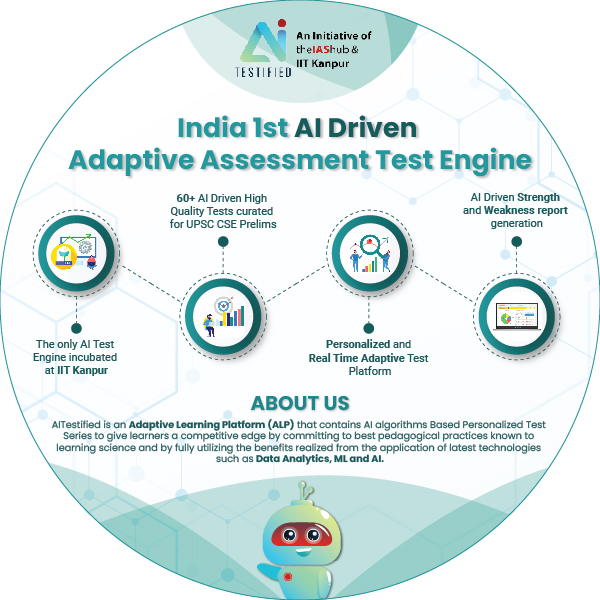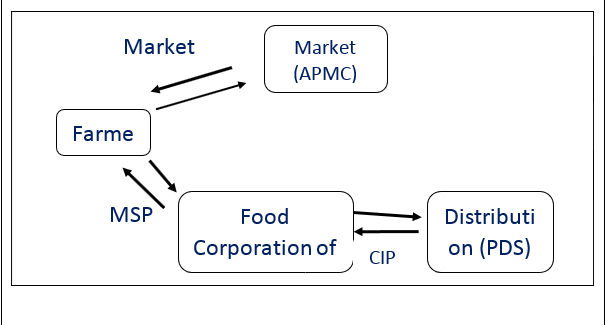Q. What are the key limitations of the Public Distribution System (PDS) in India. Suggest key measures to resolve these shortcomings. (Answer in 150 words).
Modal Answer
The Public Distribution System (PDS) evolved as a system of management of scarcity through distribution of foodgrains at affordable prices, thus ensuring food and nutritional security in India.
Limitations associated with PDS:
- Procurement:
- Open-ended procurement: increases buffer stock and complicates storage.
- Financial burden: the cost of procuring/delivering is 6 times its sale price (central issue price)
- Inadequate Storage: with the FCI as highlighted by CAG audits.
- Targeting errors: Exclusion and inclusion errors while drawing up beneficiary list for ration cards.
- Corruption & Malpractices: issue of bogus ration cards, ghost beneficiaries, middlemen, missing rate charts etc.
- Transportation: Leakage and diversion takes place during transportation + Uneven distribution.
- Other issues:
- Poor quality: Dealers replace good supplies received from FCI with inferior quality foodgrain.
- Distorted focus: ‘Cereal centric’ (wheat & rice) rather than ‘balanced Nutritional diet’.
- Seasonal migrants -unable to use ration cards.
Measures taken by the government
· Aadhaar linking and digitized ration cards: This allows online entry and verification of beneficiary data.
· Computerized Fair Price Shops: automated by Point of Sale device to swap the ration card.
· DBT: augments consumer sovereignty and choices.
· One Nation One Ration Card: allows portability of food security benefits for migrants.
Measures to resolve the shortcomings:
- End to end digitisation of PDS: Computerisation of Fair price shops, beneficiary database, GPS & RFID enabled transport, scientific storage. For eg. in Chhattisgarh.
- Creative methods of food distribution: Door step delivery (For eg. in Delhi), Food coupons, Amma Kitchens
- Grievance redressal: posting complaint boxes at every PDS and non-PDS centre.
- Universalisation via DBT: ensuring “dual purpose” of the PDS – food security and income support.
- PDS run by cooperative: instead of private licenses, cooperatives/SHGs/Women groups will bring transparency & improved management. E.g. in Tamil Nadu
A multistakeholder, community & technology driven solution is required to truly transform PDS from a mere “welfare-based” means to “rights-based” food-security platform.
Please login to upload your copy.
Uploaded Copies
No copies found.

